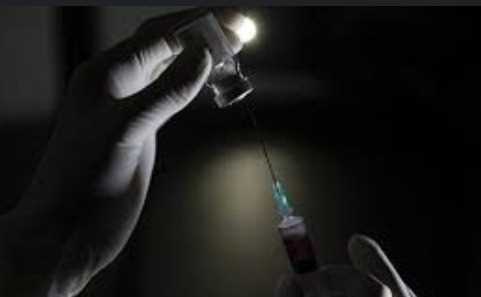
Rutendo Mazhindu- Zim Now Reporter
Millions of children across Africa are increasingly at risk of deadly but preventable diseases, as funding cuts, misinformation, and humanitarian crises threaten to derail routine immunization programmes, global health agencies have warned.
Marking World Immunization Week (April 24 to 30), the World Health Organisation, UNICEF, and Gavi have raised alarm over rising outbreaks of diseases such as measles, meningitis, and yellow fever. Weakened health systems and delays in reaching children who missed vaccinations during the COVID-19 pandemic have only worsened the situation.
“Vaccines have saved more than 150 million lives over the past five decades,” said WHO Director-General Dr Tedros Adhanom Ghebreyesus. “Funding cuts to global health have put these hard-won gains in jeopardy.”
So far in 2025, meningitis cases in Africa have surged, with over 5,500 suspected cases and nearly 300 deaths reported across 22 countries. In 2024, more than 26,000 cases were recorded—mostly in West and Central Africa.
Yellow fever cases are also rising again after years of progress. In 2024, 124 confirmed cases have been reported in 12 African countries, reversing gains made through stockpiled vaccines and consistent immunization efforts.
Measles continues to spread rapidly. In the past year, 138 countries have reported cases, with 61 facing major outbreaks—the highest number since 2019. In Africa, a sharp rise is being attributed to missed childhood vaccinations during the pandemic.
“Immunization services, disease surveillance, and outbreak response in nearly 50 countries are already being disrupted,” said UNICEF Executive Director Catherine Russell. “The global funding crisis is severely limiting our ability to vaccinate over 15 million vulnerable children in fragile and conflict-affected countries against measles.”
A WHO survey across 108 low- and middle-income countries shows nearly half are facing serious disruptions to their vaccination programmes due to reduced donor support.
In 2023, an estimated 14.5 million children worldwide missed out on all basic vaccines. Most of these children were in countries affected by conflict or instability—many of them in Africa.
Despite these challenges, there are some gains. Mass vaccination campaigns have helped eliminate meningitis A from Africa’s meningitis belt. A new vaccine covering five strains of the disease brings hope for even broader protection.
HPV vaccine coverage in Africa rose from 21% in 2020 to 40% in 2023, and malaria vaccines have now been introduced in nearly 20 African countries, with the potential to save 500,000 lives by 2035.
“Gavi’s next strategy has a clear plan to defend countries through vaccine stockpiles and targeted preventive vaccination in areas hardest hit by meningitis, yellow fever, and measles,” said Gavi CEO Dr Sania Nishtar. “But these plans will only work if we’re fully funded.”
Gavi is calling on world leaders to commit at least US$9 billion during a pledging summit on June 25, 2025, to protect 500 million children and save at least 8 million lives between 2026 and 2030.
Health organisations emphasise that vaccines remain one of the most effective tools for saving lives.
According to WHO, every dollar invested in vaccination returns US$54 in health and economic benefits by preventing costly outbreaks and protecting families.
Leave Comments